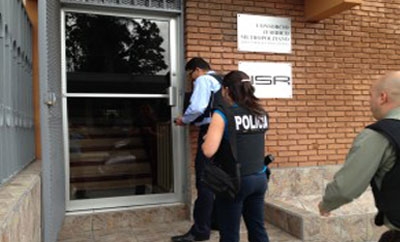Costa Rica authorities have frozen the funds of two men suspected of running a money laundering network connected to a Venezuela enterprise, highlighting both Costa Rica’s role as a regional money laundering hub, and the corruption rife among Venezuelan officials.
On June 13, a Costa Rican bank detected a suspicious transaction made by a company belonging to a Costa Rican lawyer, in which he and a Venezuelan associate signed to receive $9.7 million, allegedly coming from a company owned by the Venezuelan government, for the purchase of 10 million bars of soap. Upon investigation, authorities found that actual transactions were significantly higher, at $15.5 million, and that large sums of money deposited in the previous year for purportedly legitimate purchases had been redirected into accounts in other parts of the world, reported Reuters.
Costa Rican officials performed three searches in the capital San Jose in connection with the case, but no arrests were made.
According to an anonymous official account given to CR Hoy, the Venezuelan man worked for Venezuelan government arms manufacturing company CAVIM and used Costa Rica as a platform to launder funds that were supposed to be for buying basic necesities such as toilet paper and detergent. He then deposited the money in the name of various companies that reported no activity in the Central American country, reported EFE. The funds were later transferred to bank accounts in other countries, principally the Caribbean island Curacao, as well as the United States, Honduras, China and Panama.
InSight Crime Analysis
According to a 2011 study, Costa Rica is the top money laundering country in Central America, with unlicensed financial institutions providing an easy means for criminals to clean illicit proceeds. Profits from the cocaine trade are the primary source of this dirty money, followed by the online gaming industry, according to the 2013 International Narcotics Control Strategy Report (INCSR).
The case also highlights one of the most serious problems facing the Venezuelan state — corruption. New President Nicolas Maduro has recognized as much, warning “corruption will swallow the nation,” and has declared the struggle to tackle corruption as one of his government’s priorities.
To make any serious progress in the issue, Maduro is likely to have to take on political allies within government, and most of all, the security forces, who are deeply involved in organized crime, as well as corruption by public officials such as that in Costa Rica. Coming at a time when the new president needs to shore up support against a resurgent opposition and divided political base, it is difficult to see how he could do this without undermining his own position.

